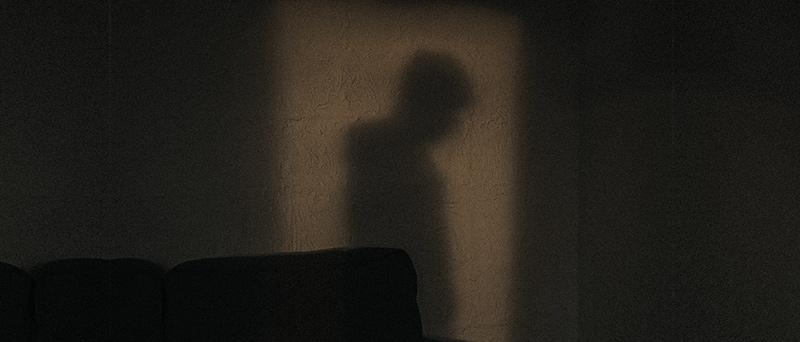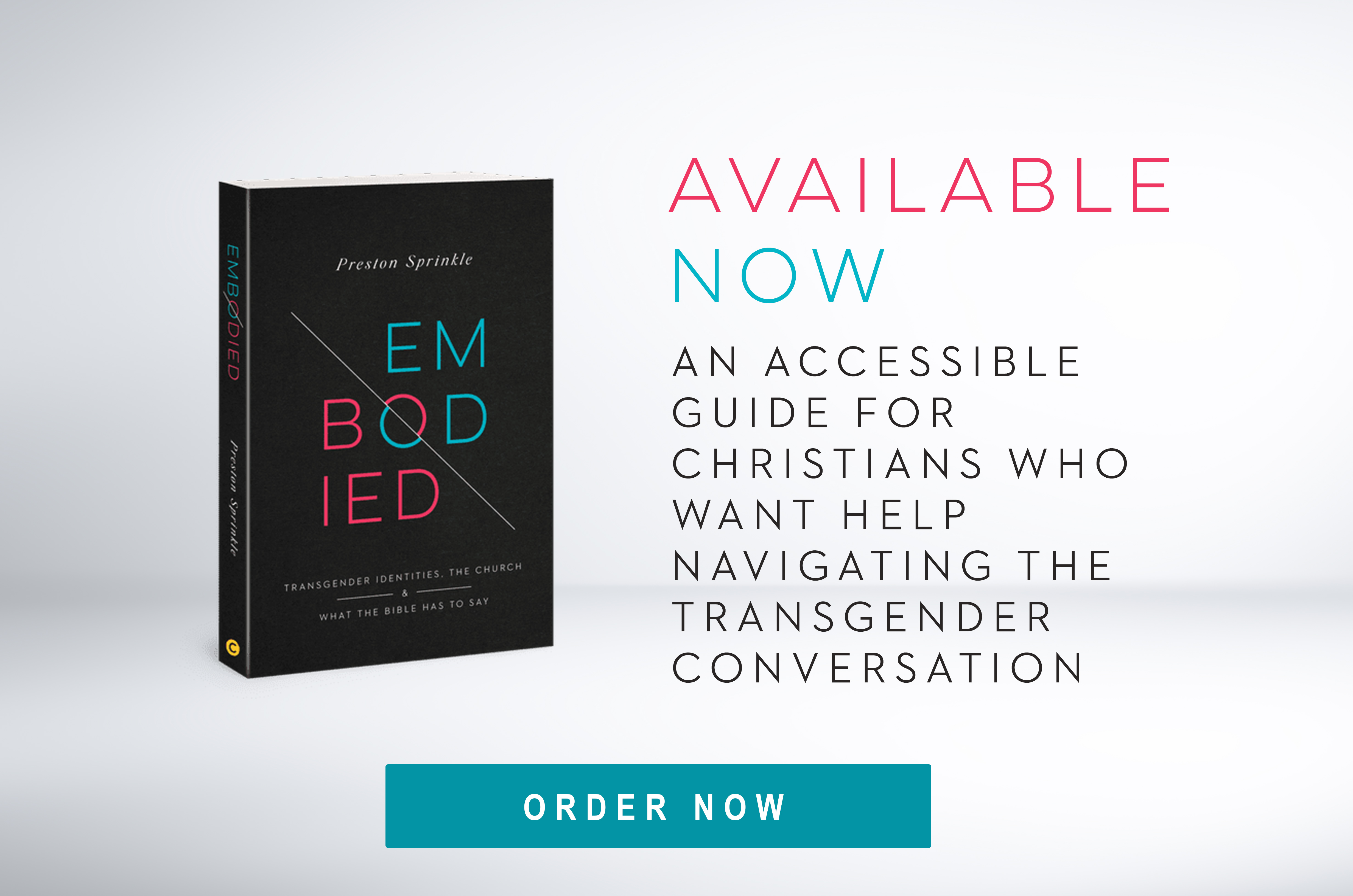
By Andrew Bunt. Andrew is a speaker and writer and is part of the team at Living Out. He explores themes like the one in this blog in his new bookFinding Your Best Identity: A short Christian introduction to identity, sexuality and gender.
When I was a young teenager, some of my friends used to joke that I would grow up to be a gay politician. As it turns out, they were half right. I’m not a politician—and I have no aspirations in that direction!—but I did turn out to be attracted to people of the same sex.
My friends weren’t being overly serious when they said this; they were just trying to make a joke about my sometimes flamboyant, “feminine” manner and the fact I can be rather opinionated. But while they might not have meant any harm, their words had a significant impact on me. What I heard when they said these things was that they thought I was weird and different. And the way they said it strongly implied to me that being gay would be a bad thing.
Buy Now!
Embodied: The Latest from Preston Sprinkle
This was happening around the same time I was becoming aware of my sexuality. I was struggling to understand what was going on, and my friends’ words told me that this emerging experience was undesirable at best, and utterly shameful at worst. Other experiences around the same time had a similar effect. Many of my peers used the word “gay” to refer to things they didn’t like, and I was the butt of a supposed joke at school where a guy pretended to have a crush on me and flirt with me. These things would shape how I felt about myself and my experience of sexuality.
That’s my story, but it’s far from unique. Many—perhaps most—LGBTQ+ people have had experiences which communicate these kinds of messages and which in turn shape how we feel about ourselves. This is one reason shame is so common among LGBTQ+ people—often, shame occurs when we let what others think (or what we assume they think) shape our sense of self.
One gay man who has talked openly about this reality is UK music artist Will Young:
[S]hame is certainly something that LGBT people experience in bucketloads. From day dot [1] the message from the powers that be is that we are wrong, less than human, freaks … We internalize this pain and turn it onto ourselves, leading to excruciating shame and internalized homophobia against ourselves and our brothers and sisters.[2]
Young’s words perfectly capture one of the common causes of LGBTQ+ shame. We observe the opinions of others (“the message from the powers that be”), which seem to be that we fail on some unspoken criteria, and so we are “wrong, less than human, freaks.” We then take that perception and allow it to shape the way we view and feel about ourselves (“we internalize this pain and turn it onto ourselves”). Shame is always a risk if we allow what other people think of us to shape our sense of self.
The answer to LGBTQ+ shame
How can Christians respond to the problem of LGBTQ+ shame? We look to the Bible’s better answer of who we are and how we form our sense of self. These truths help us to work on both preventing shame and healing shame.
Preventing Shame
We work on shame prevention by seeking to bring an end to the kinds of experiences that feed into LGBTQ+ shame. And we do this through a biblical understanding of who LGBTQ+ people are.
The very first chapter of the Bible tells us that all people are made in God’s image (Genesis 1:27). And the handful of references to God’s image in the rest of Scripture show that this truth gives every human life inherent worth and dignity. Being created in the image of God means that we deserve to be treated with honour and respect, regardless of any differences between us, including in our experience of sexuality or gender. James applies the principle of God’s image in this way, arguing that because all people are created in God’s likeness, it is inappropriate even to curse (in the sense of speaking harm over) anyone (James 3:9-10).
The fact that we know all people are created in the image of God means that we as Christians should be the first to speak up against the othering of LGBTQ+ people. We should be those fighting for respect and honour to be shown to all people, including LGBTQ+ people. We should be those calling out and challenging wrong attitudes and seeking to love and honour those who have different experiences of sexuality and gender.
Healing Shame
As Christians, we also get to offer people the ultimate healing for LGBTQ+ shame. Sadly, we won’t be able to bring an end to all the experiences that feed into shame, but we can help people find freedom from shame by knowing where to find their sense of self.
Shame is often the result of allowing the opinions of others to shape how we view and feel about ourselves. But Scripture teaches us that our sense of self is meant to be shaped by what God says about us. As creations of the Creator, we are meant to receive our identity from him. This is where the gospel is such good news and offers the ultimate healing for any experience of shame.
In the gospel, we receive a new identity as those who are loved, accepted, and adopted. This new identity isn’t based on us, on whether we are like other people, or on whether we measure up to some unspoken criteria. This identity is based on the work of Christ. When we trust in Jesus, what God says of us is not shaped by what we’re like, what we’ve done, or what other people think of us; it’s shaped by what Christ is like, what he’s done, and what God the Father says on the basis of these realities. Our identity is a secure identity, a positive identity, and an unchallengeable identity. This is the true source of healing for LGBTQ+ shame. This is part of the good news that we get to offer to the world around us.
My friends have stopped saying that they think I’ll end up as a gay politician, but I do sometimes still hear and experience messages that imply I am in some way lesser or not deserving of respect. Fortunately, these messages don’t have the same power they used to. I’ve trusted in Christ, and I now receive who I am from what God says about me on the basis of the work of Christ. When I have these painful experiences now, I can choose not to allow them to shape my sense of self, allowing what God says about me to form my self-perception instead. This is the true answer to LGBTQ+ shame.
Notes
[1] That is, from the very beginning.
[2] Quoted in Matthew Todd, Pride: The Story of the LGBTQ Equality Movement (André Deutsch, 2019), p.180.

